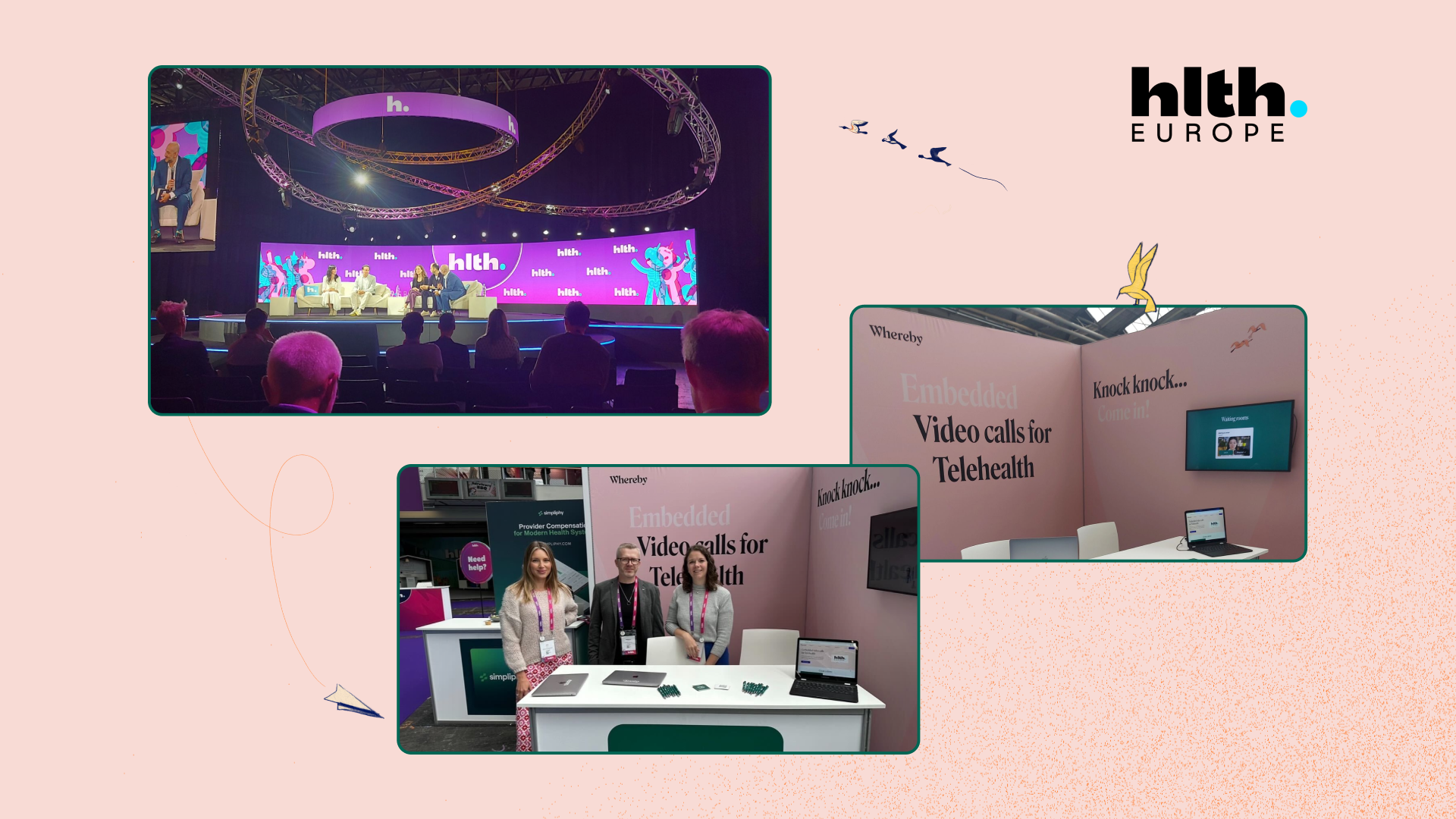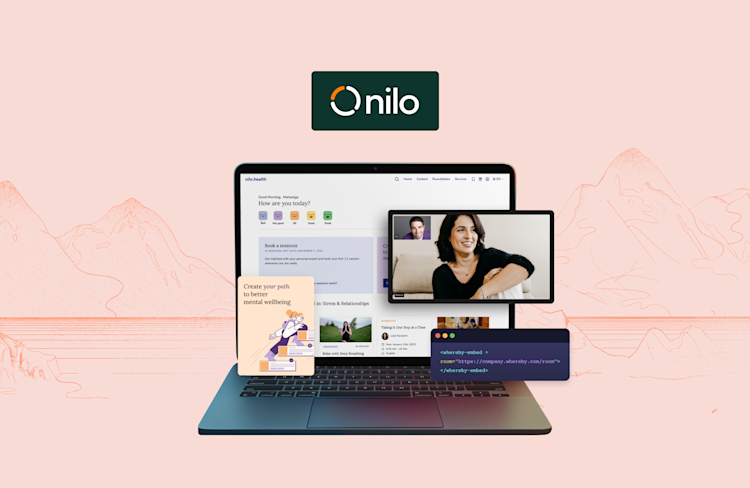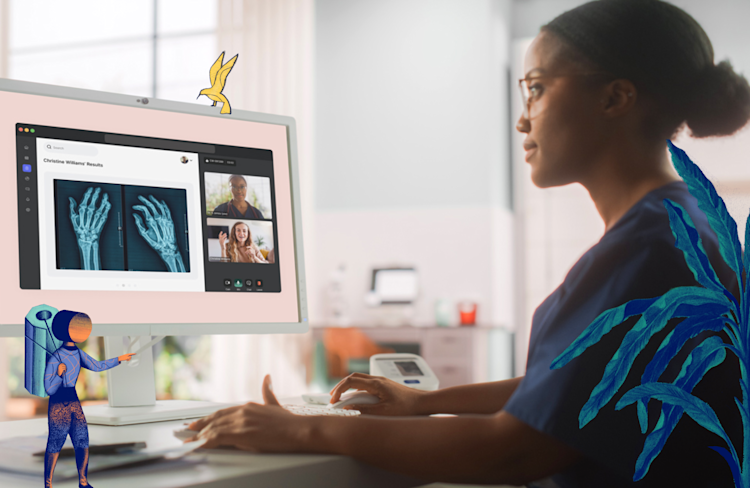Five Key Takeaways From HLTH Europe
Read our top 5 takeaways from the event hinting where the health tech industry is heading in the next year.

We were delighted to be at HLTH Europe in Amsterdam this year, speaking to all sorts of people and learning from healthcare professionals from around the world. Thank you to everyone who came to see us at our booth!
There were hundreds of insightful discussions with everyone, from Telehealth providers, to insurers, to other health tech solutions. Here are our top 5 takeaways from the event hinting where the health tech industry is heading in the next year.

1. Giving people autonomy over their own health is key
Whether through wearable tech, increased data or better access to remote care, the trend to empower people to have an interest in their health is increasing. The industry needs to enable people to become better stewards of their own health. One simple way to do this is to allow access to care and information from wherever you are through virtual consultations, Telemedicine and at-home healthcare technology.
2. Care isn’t just about the “in-moment” treatment
From preventative solutions to after-care to ongoing mental health awareness, health isn’t episodic. Healthcare professionals know a lot about their patients when they are in the four walls of their clinic or hospital, but there are blind spots on what is happening outside of that. Data and technology can not only help people to become proactive, but also provide 24/7 knowledge to health professionals remotely leading to better treatment.
3. AI is here to stay
Unsurprisingly, AI was a hot topic at HLTH Europe, and not without some heavy debate. But one thing’s for certain, it is being embraced in many areas of healthcare and is only set to grow. An increased access to data and remote patient monitoring combined with AI has huge potential to spot patterns and alert both patients and practitioners to any potential health issues sooner.
That said, it’s unlikely your doctor will be replaced by an AI chatbot anytime soon. AI shouldn’t seek to replace healthcare professionals, it should enhance the experience. AI can provide and supply insights and data to better enable care and also to streamline tasks for example by providing transcriptions and clinical notes in virtual consultations.
There was a lot of debate around trust, regulation and bias which will no doubt be a prevalent topic in the healthcare industry this year.

4. Tech should enhance and enable a stretched workforce
We have a global workforce crisis and a significant challenge in scaling the workforce at the pace that tech can scale. However there are many ways that tech can help improve efficiencies and workflows with the aim in increasing access to care globally. Not only through AI, which can help to remove admin tasks and streamline workflows, but also through remote care and data access. For example, holding follow up appointments via virtual consultations or running group physical therapy classes online can allow practitioners to focus face-to-face appointments on those that truly require a physical presence.
5. Removing stigma is vital to improving mental health
Many experts agree that early intervention is the best prevention for mental health conditions, however stigma is discouraging people from seeking help early enough. Governments and employers play a large role in helping to reduce this stigma through legislation, open dialogues and normalizing conversations around mental health. Beyond the systemic issues, companies in the mental health space can help to reduce stigma by choosing positive phrasing, helping to unpack the science of mental health conditions and providing remote access to help build trust.


